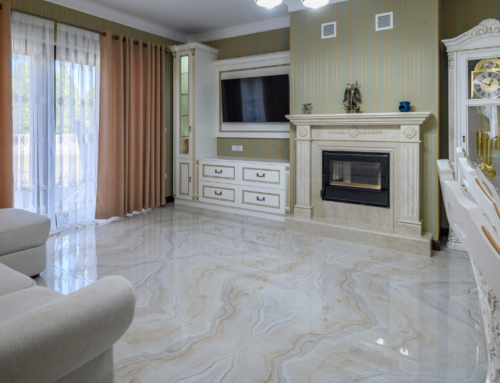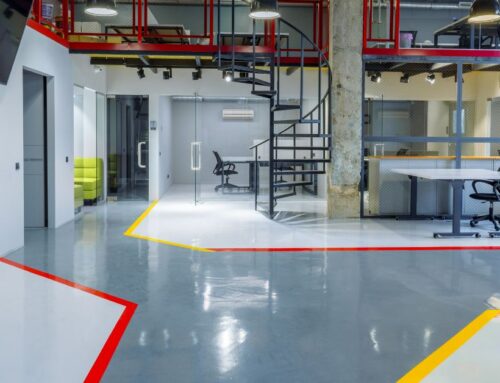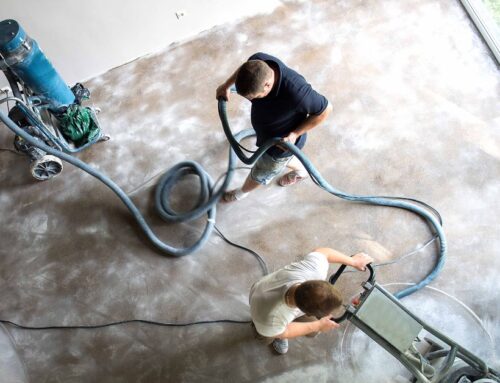Full brick masonry is a construction method that revolves around the exclusive use of bricks for both structural and aesthetic elements in building walls. That’d be the short answer to What is full brick masonry?
So, what is full brick masonry exactly? It is a construction approach that forgoes additional materials like concrete blocks or steel frames, relying solely on the strength and versatility of bricks.
Moreover, this method offers numerous advantages, including excellent thermal insulation, fire resistance, and an enduring aesthetic appeal.
As the construction industry delves into sustainable and resilient practices, the question arises again: what is full brick masonry? It emerges as a symbol of enduring legacy, highlighting bricks as a versatile and lasting construction material.
Of interest: Custom Driveways Near Me In Rocky Mount, North Carolina
What is full masonry construction?

Full masonry construction involves using masonry materials, typically bricks or blocks, to compose the primary structural and aesthetic elements of a building.
In this method, builders use masonry units to construct walls, and sometimes even the entire building. such as:
- Bricks
- Concrete Blocks
- Stone
What is more, it’s built without the use of additional materials like steel frames or wooden framing.
The term “full masonry” emphasizes the exclusivity of masonry materials in creating load-bearing walls and other essential components of a building.
Moreover, its strength, durability, and fire resistance make this construction approach well-known. That is why people have widely used it throughout history and is often associated with historical or traditional architectural styles.
Furthermore, full masonry construction provides excellent thermal mass, helping regulate indoor temperatures and contributing to energy efficiency.
Learn More: Pacheco Custom Masonry is the Best Masonry in Durham, NC
What is the difference between half brick and full brick?
The difference between half brick and full brick lies in the thickness and the quantity of bricks used in constructing walls or structures.
Therefore, half brick is thinner and people often use it in non-load-bearing situations, while full brick provides a thicker and more substantial construction suitable for load-bearing walls and structures where durability and strength are critical.
Half Brick
- Thickness: First, half-brick construction involves using bricks with a thickness equal to half of a standard brick. In most cases, this thickness is around 3 inches.
- Quantity. Placing bricks in a single layer results in a thinner wall compared to full brick construction.
- Advantages. Balanced against full brick, a Half-brick construction is often chosen for its cost-effectiveness and lighter weight. It may be suitable for non-load-bearing walls or where space and weight considerations are essential.
Full Brick
- Thickness. On the other hand, full brick construction uses standard-sized bricks with a typical thickness of around 6 inches.
- Quantity. Stacking bricks in multiple layers creates a thicker and more robust wall structure compared to half-brick construction.
- Advantages. By comparison, full brick construction earns recognition for its strength, durability, and superior insulation properties. Builders commonly use it for load-bearing walls and in structures where prioritizing structural integrity is essential.
What are the three types of masonry?
Brick Masonry
- Involves the use of bricks, typically made of clay or concrete, in order to create walls and structures.
- Bricks are bonded together using mortar to form a solid and durable construction.
Stone Masonry
- Utilizes natural stones, such as granite, limestone, or sandstone, to construct walls or structures.
- Depending on the desired aesthetic and structural requirements, craftsmen may cut stones into specific shapes or leave them in their natural form.
Concrete Masonry
- Involves the use of concrete blocks or precast concrete units to build walls and structures.
- Concrete blocks are often used in construction due to their uniform size and ease of handling.
In short, each type of masonry has its own set of characteristics, advantages, and applications. In order to allow builders to choose the most suitable method based on factors, such as the intended use of the structure, design preferences, and regional building practices.
See More: Does a brick mailbox add value?
What are the benefits of full brick masonry?
From its fire-resistant properties to its low maintenance requirements, full brick masonry continues to be a cornerstone in the construction industry, embodying a balance between enduring tradition and modern building standards. In brief, these are the benefits of full brick masonry include:
- Strength and Durability. First, full brick masonry provides robust structural integrity, ensuring long-lasting and durable buildings.
- Fire Resistance. As we said before, full brick masonry has great resistance, in addition, bricks are inherently fire-resistant, contributing to the overall safety and resilience of the structure.
- Thermal Insulation. Bricks have excellent thermal mass, helping regulate indoor temperatures and contribute to energy efficiency.
- Low Maintenance. Full brick constructions typically require minimal maintenance over the long term, reducing upkeep costs.
- Aesthetic Versatility. Bricks come in various colors, textures, and sizes, simultaneously. This allows for diverse design possibilities and architectural styles.
- Sound Insulation. Bricks provide good sound insulation. Therefore, they create a quieter and more comfortable indoor environment.
- Environmentally Friendly. Bricks are made from natural materials which is what makes them environmentally friendly and sustainable.
- Resistant to Pests and Termites. Unlike wood, bricks are not susceptible to pests or termites, improving the longevity of the structure.
Where can I get full brick masonry?
Discover top-notch full brick masonry solutions with Pacheco Custom Masonry. Their skilled craftsmen specialize in creating durable and visually appealing structures. For more information, visit their website and explore the possibilities for your next project.







Leave A Comment